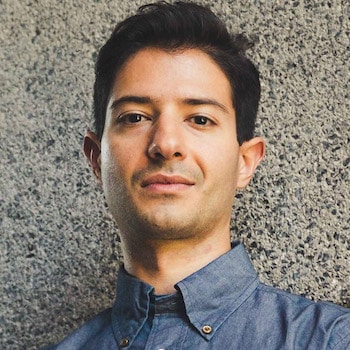Location
François-Xavier Bagnoud Aerospace Building
1320 Beal Avenue Ann Arbor, MI 48109-2140
Phone
Primary Website
Biography
Vasileios Tzoumas received his Ph.D. in Electrical and Systems Engineering at the University of Pennsylvania (2018). He holds a Master of Arts in Statistics from the Wharton School of Business at the University of Pennsylvania (2016); a Master of Science in Electrical Engineering from the University of Pennsylvania (2016); and a diploma in Electrical and Computer Engineering from the National Technical University of Athens (2012).
Vasileios is an Assistant Professor of Aerospace Engineering at the University of Michigan, Ann Arbor. Previously, he was at the Massachusetts Institute of Technology (MIT), in the Department of Aeronautics and Astronautics, and in the Laboratory for Information and Decision Systems (LIDS), as a research scientist (2019-2020) and post-doctoral associate (2018-2019).
Vasileios cares for scalable and reliable cyber-physical systems in resource-constrained, unstructured, and contested environments, such as the systems found in defense, disaster response, and smart cities. He works at the intersection of control, robotics, and online learning, contributing, on the cyber side, resource-aware optimization algorithms for perception, control, and multi-agent coordination, and, on the physical side, morphable aerial vehicles for superior control authority.
Vasileios is a recipient of an NSF CAREER Award, the Best Paper Award in Robot Vision at the 2020 IEEE International Conference on Robotics and Automation (ICRA), an Honorable Mention from the 2020 IEEE Robotics and Automation Letters (RA-L), and was a Best Student Paper Award finalist at the 2017 IEEE Conference in Decision and Control (CDC).
Education
- University of Pennsylvania
- PhD Electrical and Systems Engineering ’18
- MS Electrical Engineering ’16
- Wharton School of Business – University of Pennsylvania
- MA Statistics ’16
- National Technical University of Athens
- Diploma in Electrical and Computer Engineering ’12
Research Interests
My team and I research scalable and reliable algorithms that help mobile cyber-physical systems to adaptively perceive their surroundings, self-navigate, and collaborate. We focus on autonomous systems that must operate in resource-constrained, unstructured, and contested environments, such as the systems found in defense, disaster response, and smart cities.
We work at the intersection of control, robotics, and online learning, contributing, on the cyber side, resource-aware and near-optimal algorithms for perception, control, and multi-agent coordination, and, on the physical side, morphable aerial vehicles for superior control authority.
Professional Service
- Institute of Electrical and Electronics Engineers (IEEE)
- American Institute of Aeronautics and Astronautics (AIAA)
- The Institute for Operations Research and the Management Sciences (INFORMS)
Awards
- NSF Career Award, 2024
- Honorable Mention, IEEE Robotics and Automation Letters (RA-L), 2020
- Best Paper Award in Robot Vision, IEEE International Conference on Robotics and Automation (ICRA), 2020
- Best Student Paper Award Finalist, IEEE Conference on Decision and Control (CDC), 2017
- Interview article “Algorithms that protect” MIT LIDS|ALL Magazine, Vol. 5, 2019
- Best Presentation in Session Award, American Control Conference (ACC), 2016
- Best Presentation in Session Award, American Control Conference (ACC), 2015
